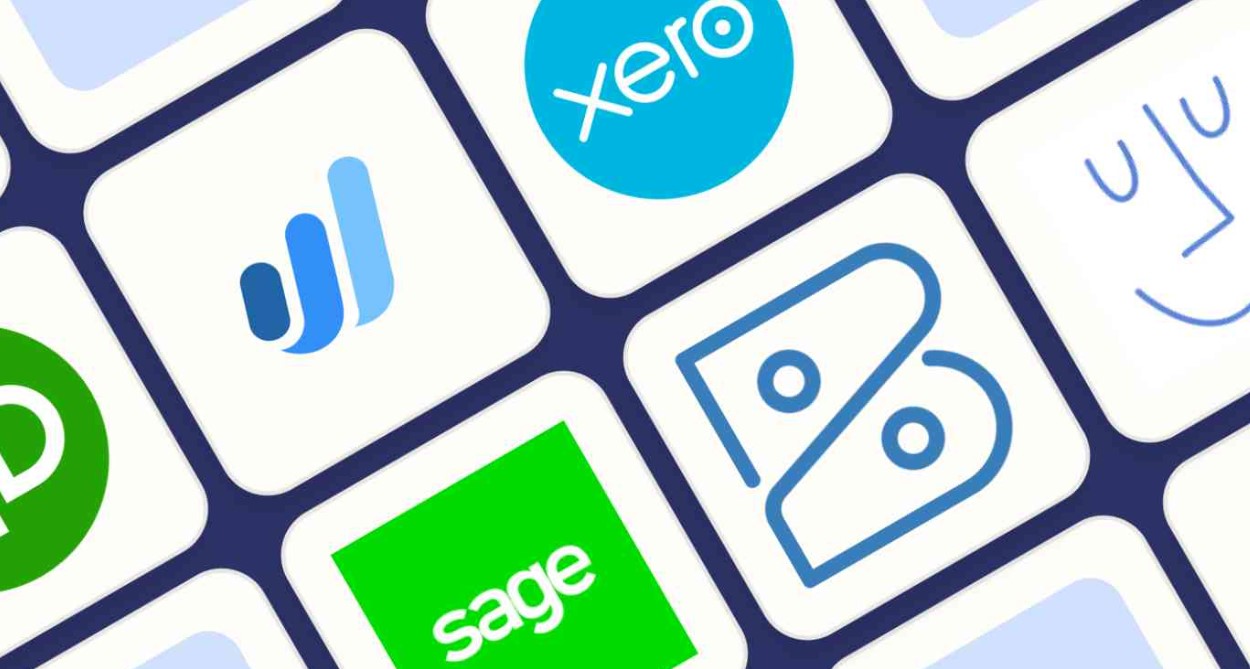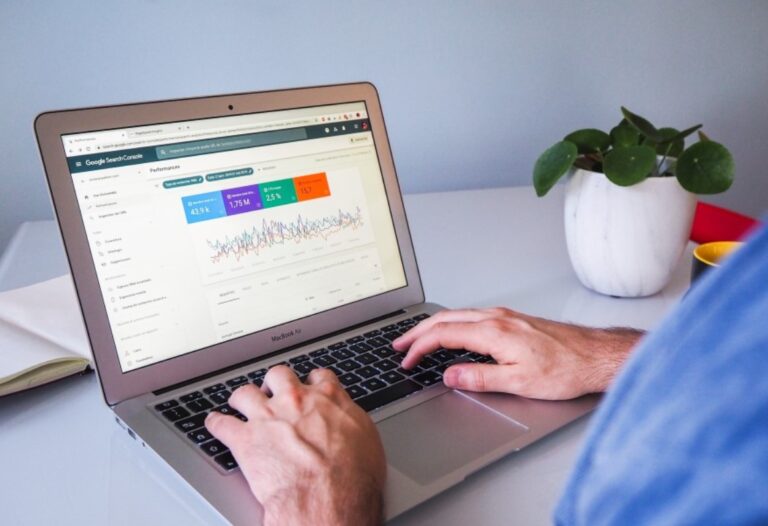The Best Accounting Software for Small Businesses in 2024
Running a small business in today’s competitive landscape requires not only a sound financial strategy but also efficient tools to manage finances accurately. Accounting software is essential for tracking expenses, managing payroll, handling invoicing, and ensuring accurate tax reporting. In 2024, a range of accounting solutions caters to small business owners, each with unique features tailored to specific needs. This guide will help you discover the best accounting software for small businesses, offering detailed insights, comparisons, and recommendations.
Why Accounting Software is Essential for Small Businesses

Managing finances is a critical component of running a successful small business. Accounting software simplifies and automates financial tasks, allowing business owners to track expenses, manage invoices, handle payroll, and maintain accurate records without relying on cumbersome spreadsheets or manual processes. In today’s fast-paced business environment, accounting software is no longer a luxury; it’s a necessity for staying competitive, compliant, and financially healthy.
1. Enhanced Efficiency and Time Savings
Small business owners often juggle multiple roles, from managing day-to-day operations to handling customer relationships. Accounting software streamlines financial management by automating routine tasks such as data entry, reconciliation, and invoicing. This automation frees up valuable time, allowing business owners and their staff to focus on growth-oriented activities rather than getting bogged down by administrative tasks.
For instance, instead of manually creating and sending invoices, accounting software can automatically generate and send them based on preset schedules. Expense categorization, another time-consuming task, is simplified through automation, reducing the need for manual input and review. Ultimately, accounting software allows business owners to redirect time and energy toward building their business.
2. Improved Accuracy and Reduced Human Error
Financial errors, even minor ones, can lead to significant problems, from inaccurate financial statements to non-compliance with tax regulations. Accounting software reduces the risk of human error by automating calculations, ensuring that every entry is consistent and accurate. With built-in error-checking mechanisms, the software alerts users to discrepancies and prevents incorrect entries, which helps maintain a high level of accuracy in financial records.
For small businesses, accuracy is essential for compliance and budgeting. Accounting software minimizes the risk of errors, such as double entries or incorrect amounts, which can distort financial reports and lead to poor decision-making. By reducing mistakes, businesses avoid costly penalties, improve record accuracy, and maintain a professional image when dealing with clients and investors.
3. Real-Time Financial Insights
One of the most valuable benefits of accounting software is the ability to access real-time financial data. Traditional bookkeeping methods require time-intensive data entry and review processes, often resulting in delayed information. In contrast, accounting software provides an up-to-date view of cash flow, revenue, expenses, and profits at any moment. This real-time access to financial insights enables small business owners to make informed decisions swiftly and with confidence.
For example, during an unexpected expense or cash flow shortage, accounting software can help a business owner quickly assess the financial situation and determine the best course of action. With real-time insights, owners can monitor spending patterns, identify potential savings, and make strategic decisions that align with their goals. These timely insights are especially crucial for small businesses that operate on tight budgets or need to adapt quickly to market changes.
4. Simplified Tax Compliance and Reporting
Filing taxes is often a complex and time-consuming process, especially for small businesses that may lack dedicated finance teams. Accounting software simplifies tax compliance by organizing and categorizing expenses, tracking income, and generating necessary reports. Many accounting tools also integrate with tax preparation software, automatically generating reports that align with tax requirements, which can be easily shared with accountants or tax professionals.
By maintaining organized records and accurate data, accounting software reduces the risk of tax-related errors, missed deductions, and penalties. Additionally, many accounting software programs are updated regularly to reflect changes in tax laws, helping small businesses stay compliant with evolving regulations. This ease of compliance is especially beneficial for small businesses that may not have the resources to hire full-time accounting staff but still need to fulfill their tax obligations accurately and on time.
5. Improved Cash Flow Management
Cash flow management is critical for small business survival, and accounting software helps owners gain a clear picture of their cash inflows and outflows. By tracking invoices, managing accounts payable and receivable, and projecting future cash flow, accounting software provides the tools needed to maintain a healthy financial position.
Accounting software can alert owners to overdue invoices, helping them follow up with clients promptly to avoid cash flow disruptions. It can also forecast cash flow based on historical data, allowing business owners to anticipate potential shortfalls and prepare in advance. By staying on top of cash flow, small businesses can avoid the pitfalls of cash shortages, plan for expenses, and allocate resources wisely.
6. Scalability and Adaptability as the Business Grows
Accounting software is designed to grow with your business. Many platforms offer basic packages with essential features, allowing small businesses to start with what they need without overwhelming complexity. As the business expands, owners can add more advanced features, such as payroll management, inventory tracking, or project accounting, based on their evolving needs.
This scalability is crucial for small businesses that anticipate growth but may not want to switch to a new system as they expand. With modular add-ons and integrations, accounting software can adapt to changing requirements, providing a flexible solution that evolves with the business. This adaptability means that the software remains a long-term solution, even as the business’s financial management needs become more sophisticated.
7. Easy Collaboration and Data Access for Team Members
For small businesses with multiple team members or external accountants, accounting software facilitates collaboration by allowing multiple users to access the system securely. Many platforms are cloud-based, meaning team members can access financial data from any device with an internet connection. This easy access is beneficial for remote work setups or businesses that rely on outside accountants or financial consultants.
Cloud-based accounting software also ensures that the data is secure, with regular backups and encryption to protect sensitive financial information. By centralizing financial data in one platform, accounting software simplifies collaboration, reduces miscommunication, and allows accountants, managers, and other stakeholders to work together effectively.
8. Better Decision-Making Through Comprehensive Reporting
Accounting software provides a range of reporting tools that offer insights into every aspect of a business’s financial health. These reports are customizable and can be generated quickly, giving small business owners access to key metrics like profit margins, expense ratios, and revenue trends. With clear and concise reports, business owners can evaluate the performance of different departments, product lines, or projects, leading to better-informed decisions.
For example, a small retail business can use accounting software to analyze monthly sales trends, helping it identify high-performing products and optimize inventory. Similarly, a service-based business might examine project costs and profit margins to determine which types of projects are most profitable. The ability to generate and analyze detailed reports supports strategic planning, helping small businesses make proactive, data-driven decisions.
9. Cost-Effective Financial Management Solution
Hiring an in-house accountant or finance team can be costly for a small business, especially in the early stages. Accounting software offers a cost-effective solution by automating many tasks traditionally handled by finance staff, such as data entry, reconciliation, and report generation. This cost efficiency allows small businesses to maintain control over their finances without stretching their budgets.
Additionally, accounting software helps reduce the risk of financial mismanagement, as all financial data is stored in a single, easily accessible platform. By reducing the need for extensive manual work, accounting software minimizes labor costs while still providing accurate and organized financial records.
10. Enhanced Professionalism with Invoicing and Financial Management
First impressions matter, and the way a business handles invoicing and payments can leave a lasting impression on clients and vendors. Accounting software provides customizable invoice templates that allow businesses to send professional, branded invoices that reflect well on the company. With automatic reminders for overdue payments, accounting software also ensures that clients are prompted to pay on time, improving cash flow without compromising relationships.
For service-based businesses, professional invoices contribute to a smooth client experience, establishing trust and confidence in the business. Timely and accurate financial management also builds credibility with investors, suppliers, and partners, enhancing the business’s reputation.
Top Accounting Software for Small Businesses in 2024

1. QuickBooks Online
QuickBooks Online remains a popular choice among small business owners due to its robust features, ease of use, and scalability. QuickBooks Online provides comprehensive tools for managing expenses, tracking invoices, and generating reports, making it ideal for businesses of all sizes.
- Pros: User-friendly interface, extensive third-party integrations, payroll management, scalable.
- Cons: Monthly subscription fees, potential learning curve for advanced features.
- Price: Starts at $25 per month.
- Features: Expense tracking, invoicing, payroll integration, tax preparation.
- Use Case: Ideal for businesses needing a versatile tool that integrates well with other platforms. QuickBooks’ payroll and tax modules are beneficial for small businesses with employees.
QuickBooks Online is best suited for small business owners who want a solution that grows with their business, offering essential accounting functions and advanced options as their needs expand.
2. Xero Accounting Software
Xero is a cloud-based accounting software designed specifically for small businesses. It provides tools for expense tracking, invoicing, and real-time collaboration with accountants, making it a valuable resource for businesses seeking streamlined financial management.
- Pros: Intuitive design, mobile app, multi-currency support, integrates with over 700 apps.
- Cons: Higher learning curve for beginners, limited payroll in some countries.
- Price: Starts at $13 per month.
- Features: Invoicing, expense management, bank reconciliation, real-time reporting.
- Use Case: Ideal for businesses with international transactions or those needing seamless collaboration with accountants. Xero’s multi-currency support and mobile functionality make it suitable for businesses on the go.
Xero offers robust functionality and flexibility, making it ideal for small businesses that frequently collaborate with accountants or handle transactions across currencies.
3. FreshBooks
FreshBooks is known for its user-friendly interface, designed with small business owners and freelancers in mind. It specializes in invoicing, time tracking, and expense management, making it ideal for service-based businesses and freelancers.
- Pros: Simple setup, excellent customer support, ideal for freelancers, invoicing capabilities.
- Cons: Limited scalability, lacks some advanced accounting features.
- Price: Starts at $15 per month.
- Features: Time tracking, invoicing, expense categorization, project management.
- Use Case: Perfect for freelancers or small service-based businesses needing easy invoicing and project tracking. FreshBooks’ user-friendly design is beneficial for those new to accounting software.
FreshBooks is designed for service-based small businesses, helping them manage client invoicing, expense tracking, and project billing with minimal complexity.
4. Zoho Books
Zoho Books is part of the larger Zoho ecosystem, making it highly adaptable for businesses already using Zoho’s suite of tools. It’s an affordable option with features that support small businesses with automation and workflow customization.
- Pros: Affordable, integrates with Zoho apps, offers automation for recurring tasks.
- Cons: Limited integration options outside Zoho ecosystem.
- Price: Starts at $12 per month.
- Features: Automation of workflows, invoicing, expense tracking, inventory management.
- Use Case: Best suited for businesses already using Zoho products or those needing affordable, customizable solutions. Zoho Books’ automation is beneficial for reducing repetitive tasks.
Zoho Books is ideal for businesses that want a comprehensive yet affordable solution, especially those already integrated within the Zoho ecosystem.
5. Wave Accounting
Wave is a popular choice for small businesses seeking a free accounting software solution. It offers essential features, including expense tracking, invoicing, and bank reconciliation, making it a great option for startups or businesses on a tight budget.
- Pros: Free to use, straightforward design, ideal for startups.
- Cons: Lacks advanced features, paid add-ons for payroll.
- Price: Free (additional fees for payroll and payment processing).
- Features: Invoicing, expense tracking, basic reporting, receipt scanning.
- Use Case: Suitable for startups or small businesses with basic accounting needs. Wave’s free pricing model makes it accessible for businesses just starting out.
Wave is best for budget-conscious business owners who need basic accounting features without the commitment of a subscription fee.
Comparing the Best Accounting Software for Small Businesses

Choosing the best accounting software depends on your business’s unique needs. Here’s a comparison of these top options by use case:
- For Growing Businesses: QuickBooks Online provides scalability and advanced payroll management, making it suitable for businesses with expansion goals.
- For International Businesses: Xero supports multi-currency transactions, making it ideal for small businesses operating internationally.
- For Freelancers and Service-Based Businesses: FreshBooks offers easy-to-use invoicing and time-tracking, perfect for freelancers and consultants.
- For Budget-Friendly Solutions: Wave is an excellent choice for startups or businesses on a budget, offering essential accounting features at no cost.
- For Businesses in the Zoho Ecosystem: Zoho Books integrates well with Zoho’s suite of tools, offering automated workflows and affordability.
Benefits of Using Accounting Software in 2024

- 1. Improved Accuracy and Compliance
Accounting software minimizes human error, reducing discrepancies in financial records. This accuracy ensures compliance with tax regulations and maintains accurate reporting, helping businesses avoid costly penalties. - 2. Time-Saving Automation
By automating tasks like invoicing, expense categorization, and payroll, accounting software allows business owners to focus on growth strategies. Automation reduces manual work and provides quick access to financial insights, improving efficiency. - 3. Real-Time Financial Monitoring
Real-time data allows small business owners to monitor cash flow, income, and expenses as they occur. This instant insight supports quick decision-making, helping owners respond proactively to financial trends.
How to Buy Accounting Software

Most accounting software providers offer direct purchase options on their websites, with some offering free trials. Here are the links to buy each software:
- QuickBooks Online: Available at QuickBooks Online.
- Xero Accounting Software: Available at Xero.
- FreshBooks: Available at FreshBooks.
- Zoho Books: Available at Zoho Books.
- Wave Accounting: Available for free at Wave.
To ensure the software meets your needs, consider starting with a trial period before committing to a subscription.
FAQs
1. What is the best free accounting software for small businesses?
Wave is considered one of the best free options for small businesses, providing essential accounting tools like invoicing and expense tracking without subscription fees.
2. Is accounting software necessary for small businesses?
Yes, accounting software is valuable for small businesses as it streamlines financial processes, reduces errors, and offers real-time insights into business health.
3. Can accounting software integrate with other business tools?
Many accounting solutions, such as QuickBooks and Xero, offer integrations with a variety of business tools, including CRM systems, payroll software, and e-commerce platforms, allowing for streamlined operations.
Choosing the best accounting software for your small business in 2024 requires understanding your specific needs, budget, and growth goals. From QuickBooks Online’s robust offerings to Wave’s free essentials, there’s an option for every business type. Accounting software not only saves time and improves accuracy but also enhances business insights, allowing you to make informed financial decisions. With the right software, your business can stay organized, compliant, and prepared for growth.






